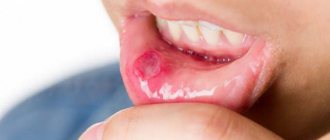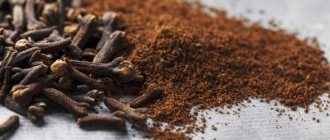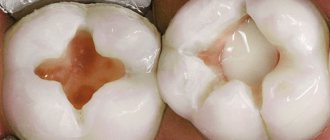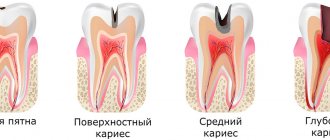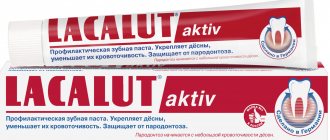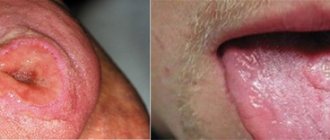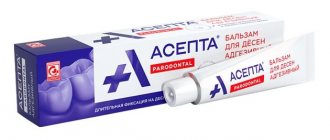Sea buckthorn oil contains a huge amount of various vitamins: A, C, E, as well as tannins and beneficial microelements. The drug is 100% natural and is considered an effective remedy that is often used to treat young children. The most valuable medicinal properties:
- Antiseptic
- Antimicrobial
- Revitalizing and regenerating
- Wound healing
- Anti-inflammatory.
Sea buckthorn oil is often used in everyday hygiene and prevention of various ailments, which include oral diseases.
The product quickly relieves pain; all you need to do is apply a cotton swab soaked in the drug to the sore spot. Inflamed and bleeding gums, stomatitis, pulpitis, etc. can also be treated with oil. For example, periodontal disease is relieved by constant rinsing with a solution of one teaspoon of medication in 100 ml of clean water or compresses with a cotton swab to the affected area. The procedure must be carried out twice a day for 7-10 minutes. Attention! After using sea buckthorn oil, do not rinse your mouth, eat or drink water for 1.5 hours. This prohibition is due to the fact that after application, an oil film with active substances forms on the surface, which can be washed off and the drug will not work.
Causes of the disease
As is clear from the name of the disease, a negative reaction of the body develops after contact with various allergens. Most often, allergic stomatitis occurs after contact with plant pollen or mold spores. The disease can also manifest itself against the background of:
- installation of crowns, fillings, prostheses made of low-quality materials;
- consumption of certain types of food (especially in children);
- decreased immunity;
- course of treatment with antibacterial drugs or sulfonamides;
- advanced caries;
- bleeding gums;
- inflammation of the oral cavity;
- proliferation of pathogenic microorganisms in the oral cavity.
Sometimes allergic stomatitis manifests itself as a complication of Lyme disease, systemic lupus erythematosus, aphthous stomatitis, hemorrhagic diathesis, and Stevens-Johnson syndrome.
Sea buckthorn oil should not be used in large quantities by people with individual intolerance, liver disease, pancreas and gall bladder. You should also not use the oil if you have diarrhea.
For sea buckthorn oil to be beneficial, it must be chosen correctly. If you buy at a pharmacy, you should look at the color and consistency. A homogeneous thick consistency is a sign of a good product. Real sea buckthorn oil contains at least 180 mg/% carotenoids, is certified and is made from selected varieties of sea buckthorn, which are grown in environmentally friendly areas.
The benefits of sea buckthorn oil are priceless, the most important thing is to know the contraindications and not abuse it.
Treatment of stomatitis and rules of use
Stomatitis is an inflammation of the oral mucosa and can appear in children of all ages and in adults. The disease often develops with a weakened immune system or as a result of injury to gum tissue.
- Only a doctor can make an accurate diagnosis, but the main signs of stomatitis are:
- general weakness, loss of strength (as with colds);
- discomfort and pain in the oral cavity while eating and drinking;
- redness and swelling of the oral mucosa;
- bleeding gums;
- the appearance of a yellow-white coating on the tongue and inner surface of the cheeks;
- small ulcers in the mouth.
Treatment of stomatitis is usually carried out using various traditional medicine preparations, but considerable benefit can also be obtained from folk remedies, one of which is sea buckthorn oil. The rules for its use depend on the age of the patient.
For adults
Sea buckthorn fruit oil can be used as an adjuvant drug for the treatment of stomatitis in adults. It helps to quickly eliminate unpleasant symptoms of the disease, healing wounds in the oral cavity and reducing pain.
Recommendations for use of the product for adults:
- the oral cavity is treated with a cotton swab dipped in sea buckthorn oil;
- You need to especially carefully apply the liquid to ulcers and damage to the mucous membrane;
- treatment is performed 4 times a day until complete recovery;
- for large wounds, apply a piece of bandage soaked in sea buckthorn oil to them - leave the compress for 5 minutes, repeating the procedure 4 times a day.
To increase the effectiveness of using sea buckthorn oil for stomatitis, before each treatment, it is recommended to thoroughly rinse the mouth with warm water to remove food debris.
For children
Some pharmaceutical medications for stomatitis cannot be prescribed for the treatment of children due to contraindications. In such cases, sea buckthorn oil at room temperature is used to combat the disease. Before using the product, be sure to consult a pediatrician.
Features of using the product for stomatitis in children:
- the oil is applied directly to the affected areas of the oral mucosa using a cotton swab;
- treatment is performed 4-5 times a day;
- to rinse the mouth, use a solution of 250 ml of boiled water and 2-3 drops of sea buckthorn oil - the procedure is repeated every 2 hours;
- For preschool children, the oral cavity is irrigated with a similar mixture using a spray bottle - for this, the child is laid on his side, performing the procedure 4-5 times a day.
Treatment is continued until all symptoms of stomatitis disappear completely. Using the above actions, you can significantly reduce the unpleasant symptoms of the disease after 2-3 treatments.
For babies
Sea buckthorn oil is a completely natural product, so it can be used to treat stomatitis in infants. But in this case, the drug is used with extreme caution, since it can cause allergies and aggravate the course of the disease.
The affected areas of the baby's oral mucosa are carefully wiped with a cotton pad soaked in sea buckthorn oil. The procedure is repeated up to 3 times a day, and instead of a cotton pad, you can use a small cotton swab.
Why sea buckthorn oil is useful in dentistry
Sea buckthorn, like its oil, has an anti-inflammatory, regenerating, restorative and antiseptic effect. For this reason, sea buckthorn oil has many uses in dentistry. It is used for stomatitis, mouth ulcers, toothache, periodontitis, pulpitis, etc. Sea buckthorn oil heals the mucous membrane. Dentists often prescribe medications to their patients, one of the main components of which is sea buckthorn berry oil.
Proper gum care is almost impossible without the use of sea buckthorn oil. If you regularly use sea buckthorn oil for your gums, it will strengthen them, reduce bleeding, improve microflora, and eliminate unpleasant odor from the mouth. In addition, sea buckthorn oil can relieve gum inflammation.
Healing properties
Sea buckthorn berries have long been known among folk healers and healers as a unique natural medicine. The oil made from the fruits of this tree has a universal complex effect on the body, due to which it can be successfully used to treat many diseases.
Sea buckthorn oil is used as a local medicine for wounds, burns, inflammatory processes and pustules, and internally to treat gastritis, esophagitis, impaired gastrointestinal motility, or to prevent the development of peptic ulcers.
Bleeding gums
Hepatitis
8025 09 March
IMPORTANT!
The information in this section cannot be used for self-diagnosis and self-treatment.
In case of pain or other exacerbation of the disease, diagnostic tests should be prescribed only by the attending physician. To make a diagnosis and properly prescribe treatment, you should contact your doctor. Bleeding gums: causes of occurrence, what diseases it occurs with, diagnosis and treatment methods.
Definition _
Bleeding gums occur when brushing teeth or chewing hard foods, such as apples or raw carrots. It should be remembered that in some cases this condition may be a symptom of serious oral diseases such as gingivitis and periodontitis.
In addition, a large amount of data has now been accumulated proving the relationship between diabetes mellitus and cardiovascular pathologies with inflammation of the periodontium (tissues surrounding the teeth).
Types of bleeding gums
According to the frequency of manifestations, bleeding gums can be chronic, that is, occurring regularly, or be situational in nature - usually in response to gum injury.
Possible causes of bleeding gums
The causes of bleeding gums can be divided into two main groups:
- Pathologies of the oral cavity.
- Pathologies of body systems.
Pathologies of the oral cavity
- Gingivitis
. This disease is characterized by the development of inflammation of the mucous membrane of the gums. Symptoms of this condition include redness or bluishness of the gums, swelling and bleeding. In advanced cases, manifestations of the disease interfere with eating and disturb even during sleep.
- Periodontitis
is a disease that requires a visit to the dentist. It is characterized by severe bleeding gums, loose teeth, the necks of which are exposed, resulting in teeth falling out. Periodontitis is often accompanied by severe inflammation, up to the discharge of pus from the pocket that forms between the tooth and the gum.
- Tartar
is hardened food debris and waste products of oral bacteria. It injures the gums, which leads to their bleeding. There are subgingival stones (outwardly invisible) and supragingival stones (visible to the naked eye).
In addition to bleeding, all gum diseases are characterized by the following symptoms:
- unpleasant and painful sensations when touched (pressing on the gums, brushing teeth);
- bad breath;
- increased salivation not associated with other diseases of the oral cavity or gastrointestinal tract;
- dental plaque and calculus;
- change in the appearance of the gums (swelling, redness or cyanosis);
- change in the appearance of the teeth (exposure of the neck, change in color due to the deposition of tartar).
Another, albeit rare, cause of bleeding gums is the increased content of fluoride in drinking water.
After water analysis has confirmed the high content of this element, it is recommended to use various filters to purify running and drinking water. The most common pathologies of the body leading to bleeding gums
are vitamin deficiency
. The well-known disease scurvy is associated with insufficient intake of vitamin C in the body, this is manifested by increased bleeding of the gums, impaired collagen synthesis, as a result of which the connective tissue cannot fully perform its functions.
The cause of bleeding gums may be insufficient intake of vitamin A (retinol), riboflavin and pyridoxine (B2 and B6), calciferol (vitamin D, in particular, its variety - vitamin D3), tocopherol (vitamin E), nicotinic acid (vitamin PP ) and vitamin K. The latter not only affects the structure of tissues, but also participates in blood clotting processes.
Hormonal changes in the body
, which occurs during pregnancy and puberty in adolescents, may also be accompanied by bleeding gums.
For diabetes
Small vessels throughout the body are affected, including the oral cavity, retina, etc.
Hepatitis
of various etiologies is also characterized by the development of bleeding gums, since many blood clotting factors are synthesized in the liver . Taking into account the fact that the human blood coagulation system works on the principle of a cascade, a deficiency of at least one element leads to impaired hemostasis. Hepatitis is characterized by a mixed type of coagulation disorder, caused by a lack of many vitamins as a result of impaired absorption, a decrease in platelet levels, and damage to the liver as a source of coagulation factors.
Leukemia
, as well as
blood diseases of various types
, leading to a decrease in the number of platelets, or vice versa, increasing blood viscosity, can manifest as increased bleeding of the gums. With these diseases, attention is drawn to pallor of the skin and visible mucous membranes, the appearance of bleeding in various locations, bruises, increased fatigue, and weakness; Night sweats and fever not due to any other reasons are possible.
Which doctors should I contact if I have bleeding gums?
First of all, patients with bleeding gums turn to the dentist.
If the doctor cannot find the root cause of the bleeding, consultation is necessary, or.
Diagnosis and examinations for bleeding gums
If diabetes mellitus is suspected as the cause of bleeding gums, it is necessary to prescribe a glucose tolerance test, determination of glycated hemoglobin in the blood, determination of blood glucose levels on an empty stomach and during the day.
Sea buckthorn oil for stomatitis
Stomatitis is a very unpleasant disease characterized by ulcerative rashes in the oral cavity. Children are especially susceptible to this problem, because... their body is highly susceptible to the influence of harmful bacteria, and the children themselves are constantly “trying everything.” Often with stomatitis it is impossible to speak, swallow, or move the tongue: all these actions cause pain. What makes sea buckthorn oil incredibly valuable is that it can be used by both children and adults.
The use of sea buckthorn oil to treat stomatitis is quite common among those who have long since passed childhood. The versatility of the product makes it extremely popular; almost every family has a bottle of it. Many who have purchased sea buckthorn oil for a specific purpose are surprised by the wide range of its uses.
The vitamins A, C, E, tannins, and phytosterols contained in sea buckthorn oil will have a wound-healing effect, speed up the recovery process, improve blood circulation, and relieve inflammation.
Contraindications
Sea buckthorn oil in dentistry is practically safe, the only thing you should be wary of is individual hypersensitivity to the main elements of the composition, in other words, an allergy to sea buckthorn. Before using the product on your teeth and gums, be sure to conduct a trial test by applying the product to your wrist or elbow for a day. If a reaction occurs in the form of redness, rashes or itching, then the oil should not be taken, because after its use on mucous membranes, it can cause severe swelling of the throat or larynx.
Particular attention should be paid to children, because they experience allergic reactions more often than adults. Inform your healthcare professional about your desire to use the drug in question for therapy or preventive measures.
